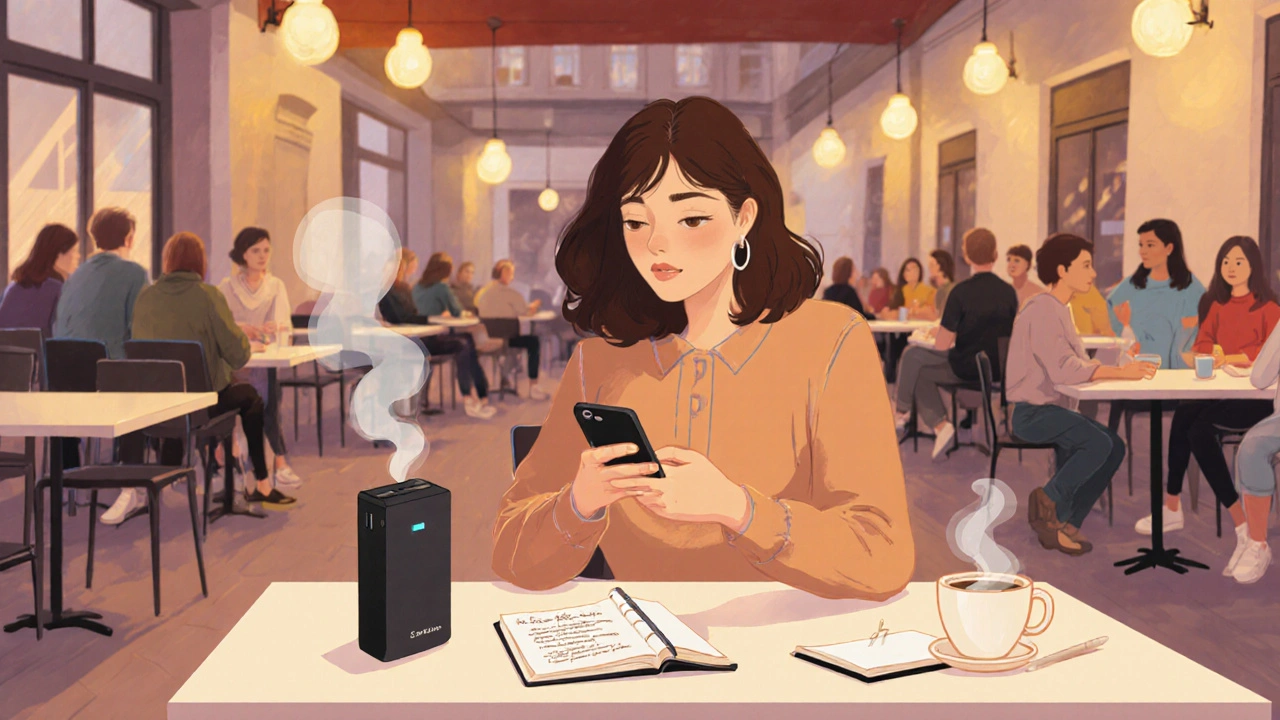10 Essential Safety Tips for Adult Work in Munich

If you're doing adult work in Munich, you're not just navigating a job-you're managing risk every single day. The city has a reputation for being organized, clean, and relatively safe, but that doesn’t mean danger disappears. In fact, some of the biggest threats come from people who assume everything’s fine because the streets look nice. This isn’t about fear. It’s about control. You deserve to work without constantly looking over your shoulder.
Know Your Neighborhood Like Your Own Apartment
Munich has dozens of areas where adult work happens-some legal, some gray, some outright dangerous. Don’t rely on Google Maps or what someone told you last year. Walk the streets at night. Note which alleys are poorly lit. Which buildings have security cameras? Which cafes have regulars who might notice if something’s off? The Glockenbachviertel and Schwanthalerhöhe are common zones, but even within those, blocks vary wildly. One building might have a working elevator and a doorman; the next might be abandoned except for one room where someone’s been hurt before. Talk to other workers. Not just online. In person. Over coffee. They’ll tell you which addresses to avoid, which clients show up drunk and angry, and which cops turn a blind eye versus which ones will write you a ticket for standing too long.Always Verify Before You Go
Never show up at a client’s place without confirming their identity. Not just their name. Their face. Their phone number. Their profile history on AdultWork. If they’re new, ask for a video call before agreeing to meet. Ask them to hold up a piece of paper with today’s date and your name written on it. If they refuse, walk away. No exceptions. I’ve seen too many women get trapped because they thought, “They seemed nice.” Nice doesn’t mean safe. A lot of predators are charming. They know how to talk. They know how to make you feel special. That’s the trap. Trust the process, not the person.Use a Safety Word with a Trusted Friend
This isn’t optional. Every time you leave for a job, text a friend: “Going to [address] with [client name]. Back by [time].” Then, set a timer. If you don’t check in by that time, they call the police. Not “maybe.” Not “if I feel weird.” Right then. No waiting. Tell them to call 110 immediately if you don’t respond. Give them your location sharing. Use Life360 or Find My Friends. Make sure they know how to use it. Practice this once a week. Make it automatic. If you’re working alone, your phone is your lifeline. If you’re working with someone else, make sure they’re equally prepared. Don’t assume they’ll remember. Write it down. Stick it on your mirror.
Carry a Personal Alarm and Know How to Use It
A small keychain alarm isn’t just a tool-it’s a deterrent. It’s loud. It’s sudden. It draws attention. In a city like Munich, where people are used to quiet streets and polite behavior, a piercing alarm will make someone think twice. Keep it on your keyring. Don’t put it in your purse. Don’t let it get buried under your wallet. Practice pulling it and activating it in the mirror. Do it while you’re brushing your teeth. Make it second nature. You don’t need to scream. You don’t need to fight. You just need to make enough noise that someone hears it and calls for help.
Never Accept Cash Only
Cash is anonymous. Cash is untraceable. Cash is how predators operate. If a client insists on cash only, that’s a red flag. Period. Use bank transfers. Use PayPal. Use Revolut. Even if they say, “I don’t have a phone,” or “I’m not good with apps,” that’s not your problem. You’re not here to fix their tech issues. You’re here to stay alive. If they’re uncomfortable with digital payments, they’re probably hiding something. And if they’re willing to risk getting caught by paying in cash, they’re willing to risk hurting you. Walk away. No guilt. No apology. Your safety isn’t negotiable.

Keep Your Phone Charged and Always Carry a Power Bank
A dead phone is a silent phone. And a silent phone means no help if something goes wrong. Always carry a portable charger. Not the tiny one that gives you 10%-get the 10,000mAh one. Charge it every night. Keep it in your bag, not your pocket. If you’re meeting someone in a hotel, ask to use the outlet to charge before you go in. If they say no, leave. If you’re walking back to your place after a job, check your battery before you step out. 20% is your minimum. If you’re below that, wait. Call someone. Take a taxi. Don’t risk it. This isn’t about being dramatic. It’s about being prepared.
Don’t Let Anyone Control Your Schedule
If a client says, “I’ll be late,” and you wait for an hour, you’re already in danger. If they say, “Let’s stay longer,” and you feel pressured, you’re already in danger. You set the time. You set the rules. You end the meeting when you want. No excuses. No “but he’s a good guy.” No “but he pays extra.” If someone tries to stretch your time, extend the price. If they refuse, leave. If they get angry, leave faster. You’re not a service you can be extended like a hotel room. You’re a person with boundaries. Enforce them. Every. Single. Time.
Use a Locked Room, Not Just a Hotel
Hotels aren’t safe by default. Some have poor locks. Some have staff who don’t care. Some have cameras in the hallways. Always ask for a room with a deadbolt. Check the lock yourself. Slide a chair under the handle. Use the chain lock if there is one. Never sleep with the door unlocked. Never let someone in without verifying who they are-even if they’re the same person you met earlier. If you’re staying in an apartment, install a door stopper. Buy one for €5 at any hardware store. Put it under the door when you’re inside. It won’t stop a determined person, but it will slow them down. And time is your best friend.

Know Your Legal Rights in Germany
Prostitution is legal in Germany. That means you have rights. You can refuse service. You can demand payment upfront. You can call the police without fear of being arrested. You can report assault, threats, or theft. You are not a criminal. You are a worker. If someone tries to intimidate you with “I know people,” or “You’ll get in trouble,” they’re lying. The police in Munich have a special unit for sex workers. They’re trained. They’re not judgmental. Call them. File a report. Keep a copy. Even if nothing happens right away, having it on record matters. Document everything: names, times, license plates, screenshots. You never know when it will be needed.
Build a Network-Don’t Work in Isolation
You’re not alone. There are other workers in Munich. Some are quiet. Some are loud. Some are online. Some meet in person. Find them. Join the local Telegram group. Go to the monthly meetups at Café Glockenbach. Talk about what worked, what didn’t, who to avoid. Share tips. Share warnings. You don’t have to be friends. You just have to be connected. When someone disappears, someone else notices. When someone gets hurt, someone else speaks up. That’s how you survive. That’s how you protect each other. Isolation is the biggest risk you face-not the streets, not the clients. It’s being alone with no one who knows where you are.
Is adult work legal in Munich?
Yes, prostitution is legal in Germany under the Prostitution Act of 2002. Sex workers can register as self-employed, pay taxes, and access social benefits. However, operating in public spaces or soliciting on the street can lead to fines. Most adult work in Munich happens through private appointments arranged online, which is the safest and most common method.
Can I report a client who threatened me?
Absolutely. German law protects sex workers from violence, harassment, and coercion. Report threats or assaults to the police by calling 110. Bring any evidence: screenshots, messages, recordings, or witness statements. Police in Munich have specialized units trained to handle these cases without judgment. Filing a report doesn’t mean you’ll be punished-it means you’re exercising your legal rights.
What should I do if a client refuses to pay?
Do not confront them. Leave immediately. If you used a digital payment method, check your account for the transaction. If it didn’t go through, block them and report the incident to the AdultWork platform. If you accepted cash and they left without paying, file a police report with the time, location, and description. While recovering the money is unlikely, documenting the incident helps build a pattern if this person targets others.
Are there safe spaces or support groups for sex workers in Munich?
Yes. Organizations like Münchner Frauenzentrum and Prostitution Support Network Munich offer confidential advice, legal aid, and peer support. They host monthly meetups and provide access to health services, trauma counseling, and housing assistance. Many workers use these resources to stay safe and connected. You don’t need to be in crisis to reach out-early support prevents bigger problems.
Should I use a fake name on AdultWork?
Using a pseudonym is strongly recommended. Never share your real name, address, or workplace on your profile. Use a name that doesn’t connect to your personal life. Avoid posting photos with identifiable landmarks, your car, or your children. Keep your profile professional but vague. Your privacy is your armor. Once you give out personal details, you lose control over them.
What to Do If Something Goes Wrong
If you feel unsafe during a meeting, leave immediately-even if you haven’t been paid. Your life is worth more than any amount of money. Call your safety contact. Call 110. Go to the nearest public place: a pharmacy, a train station, a 24-hour supermarket. Don’t wait for “it to get worse.” The moment you feel uneasy, act. If you’re injured, go to a hospital. Tell them you had an accident. You don’t owe anyone an explanation. If you’re shaken, call a support line. Don’t bottle it up. Trauma doesn’t vanish because you’re back in your apartment. Talk to someone. Write it down. You’re not weak for needing help. You’re strong for surviving.
Final Thought: You’re Not Just a Worker. You’re a Person.
The system doesn’t always protect you. The law doesn’t always help. But you can protect yourself. You can choose your boundaries. You can say no. You can walk away. You can call for help. You can survive. And you deserve to do it without shame, fear, or silence. Stay sharp. Stay connected. Stay alive.
Is adult work legal in Munich?
Yes, prostitution is legal in Germany under the Prostitution Act of 2002. Sex workers can register as self-employed, pay taxes, and access social benefits. However, operating in public spaces or soliciting on the street can lead to fines. Most adult work in Munich happens through private appointments arranged online, which is the safest and most common method.
Can I report a client who threatened me?
Absolutely. German law protects sex workers from violence, harassment, and coercion. Report threats or assaults to the police by calling 110. Bring any evidence: screenshots, messages, recordings, or witness statements. Police in Munich have specialized units trained to handle these cases without judgment. Filing a report doesn’t mean you’ll be punished-it means you’re exercising your legal rights.
What should I do if a client refuses to pay?
Do not confront them. Leave immediately. If you used a digital payment method, check your account for the transaction. If it didn’t go through, block them and report the incident to the AdultWork platform. If you accepted cash and they left without paying, file a police report with the time, location, and description. While recovering the money is unlikely, documenting the incident helps build a pattern if this person targets others.
Are there safe spaces or support groups for sex workers in Munich?
Yes. Organizations like Münchner Frauenzentrum and Prostitution Support Network Munich offer confidential advice, legal aid, and peer support. They host monthly meetups and provide access to health services, trauma counseling, and housing assistance. Many workers use these resources to stay safe and connected. You don’t need to be in crisis to reach out-early support prevents bigger problems.
Should I use a fake name on AdultWork?
Using a pseudonym is strongly recommended. Never share your real name, address, or workplace on your profile. Use a name that doesn’t connect to your personal life. Avoid posting photos with identifiable landmarks, your car, or your children. Keep your profile professional but vague. Your privacy is your armor. Once you give out personal details, you lose control over them.